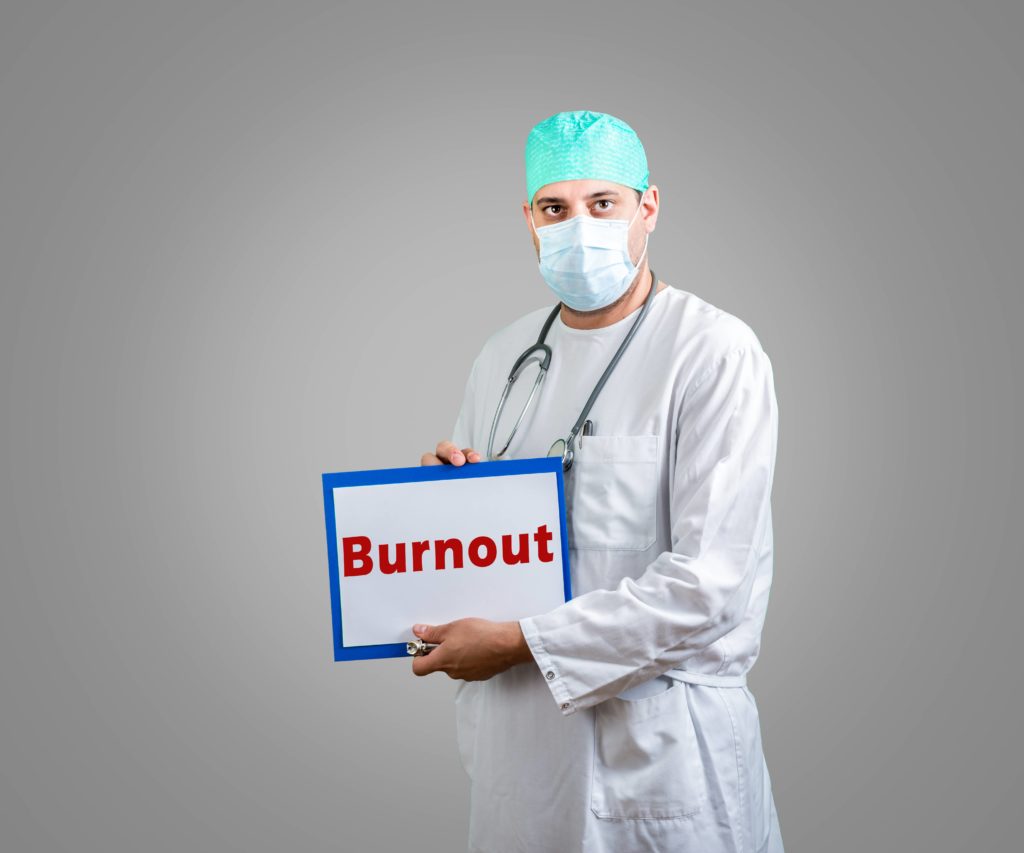Doctor’s Burnout – Is our NHS on the Road to a New Crisis?
28 Oct 2021 | Anne Marie Fogarty
| Share with

Here in the UK, it’s safe to say that there are a number of things we take for granted, too many to list in fact. Out of the many, many things taken for granted, however, the NHS (National Health Service) has to be up there towards the top.
The NHS is a wonderful concept – free healthcare for all, not just the privileged, and when you compare it to the health services offered in other parts of the world, it’s easy to understand why we should do everything in our power to protect it at all costs.
Don’t get us wrong, the NHS isn’t flawless, and there are numerous sectors that need improving upon, but if there’s one thing the COVID-19 pandemic highlighted in 2020, it’s the fact that the NHS is the backbone of this nation.
Each and every single member employed by the NHS helps keep this country ticking over, yet worrying statistics around doctors has emerged. Studies showed that, even before the pandemic in early 2020, burnout rates amongst doctors was alarmingly high. Now, as we reach what is hopefully the recovery stage of the pandemic, doctors, young and old, are more burntout than ever before.
COVID-19 and Doctor’s Burnout
Doctor’s burnout is basically a term used to describe the physical and psychological stress that doctors have been subjected to due to extremely long hours, very little downtime, increased workloads, elevated stress levels, verbal, and sometimes physical abuse from some members of the general public, and much more besides.
Put simply, doctors are people too and even before early 2020, doctors were working too hard, too frequently, under a lot of stress, and their physical and mental health was suffering. Throw a global pandemic into the mix, and you can imagine what an effect this will have had.
Recently, in a report published by the GMC (General Medical Council) back in July 2021, it was highlighted how the pandemic was causing increasing levels of burnout in doctors and was at risk of reversing recent improvements that doctors had seen in their workloads.
The report mentions how a survey was conducted on more than 63,000 doctors across the UK, and the vast majority of responses to questions regarding burnout stated that they were the worst since the surveys were introduced back in 2018.
In previous years, around 25% of trainees had stated that they were experiencing burnout symptoms to high, or very high degrees. Post-pandemic however, this number has increased to a third.
Three out of five doctors stated that they regularly felt worn out at the end of their shift at work, whereas 44% stated that their work was making them feel ‘emotionally exhausted’ to alarmingly high degrees.
Are Our Doctors at Risk?
As you can see from the stats above, doctors here in the UK are under extreme stress, their workloads are alarmingly high, they aren’t getting enough downtime, and there is a risk that they could suffer from the lasting effects of burnout.
During the Coronavirus pandemic which began in 2020, virtually everybody was scared. We’d never seen an event like this in our lifetimes, and we didn’t know what to expect. Everywhere we looked, it was doom and gloom, yet we expected our doctors, nurses, and NHS workers to work full-time and put their lives at risk. Needless to say, this must have taken its toll, both physically and mentally.
Now, as we enter the final stages of the pandemic, there is a concern that our doctors are at risk. The NHS has vast backlogs to tackle. People have been drinking more and using recreational drugs more during and since lockdown, so alcohol and drug-related illnesses and deaths are increasing. People gained weight during the lockdown, so the numerous health issues relating to obesity will also rear their ugly heads. Who will have to pick up the pieces? Our doctors and various other NHS employees.
Eventually, the physical and mental stress doctors are placed under will get too much, and it will be our doctors needing help. There’s an increased risk of mental health conditions arising with doctors, plus there’s the ill-effects of stress such as hypertension, risk of stroke and heart attack etc, not to mention the physical and mental exhaustion caused by the job.
If things don’t change now, it will be our doctors in need of specialist medical care, plus there’s also the risk that they will either retire or simply leave their jobs and seek employment elsewhere. We’ve seen what a shortage of HGV drivers can do in this country, so imagine the devastation left in the wake of a shortage of doctors? Let’s hope they get the help and support they need and fast!
Leave a Comment
You must be logged in to post a comment.

28 Oct 2021 | Leave a comment
Share with socials